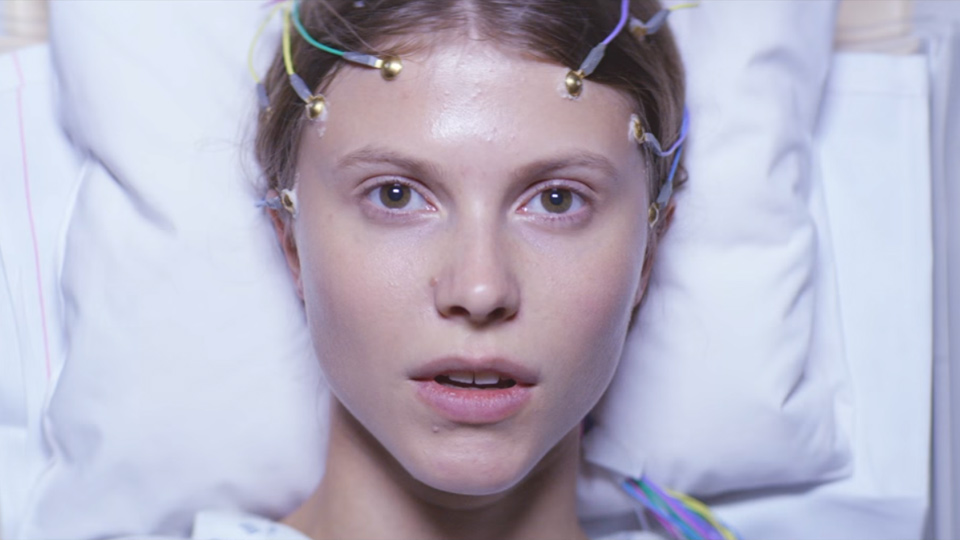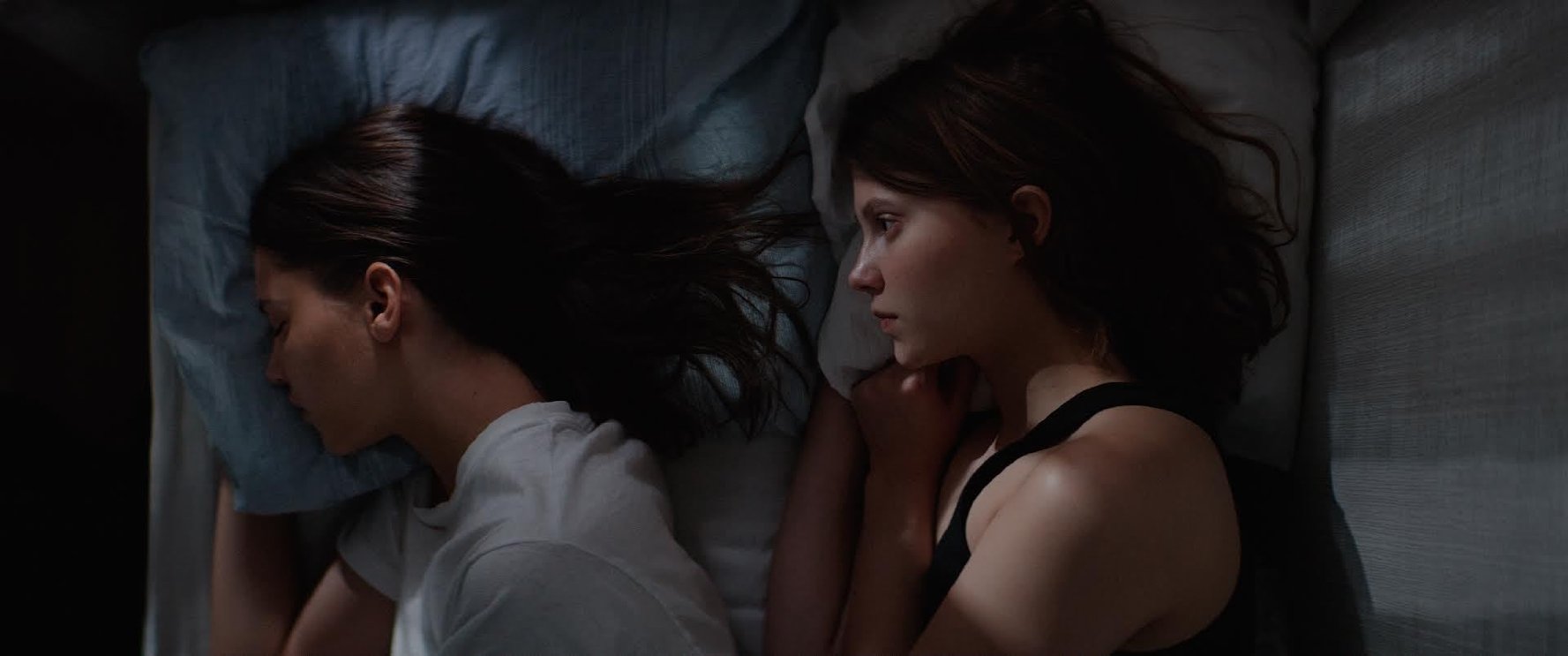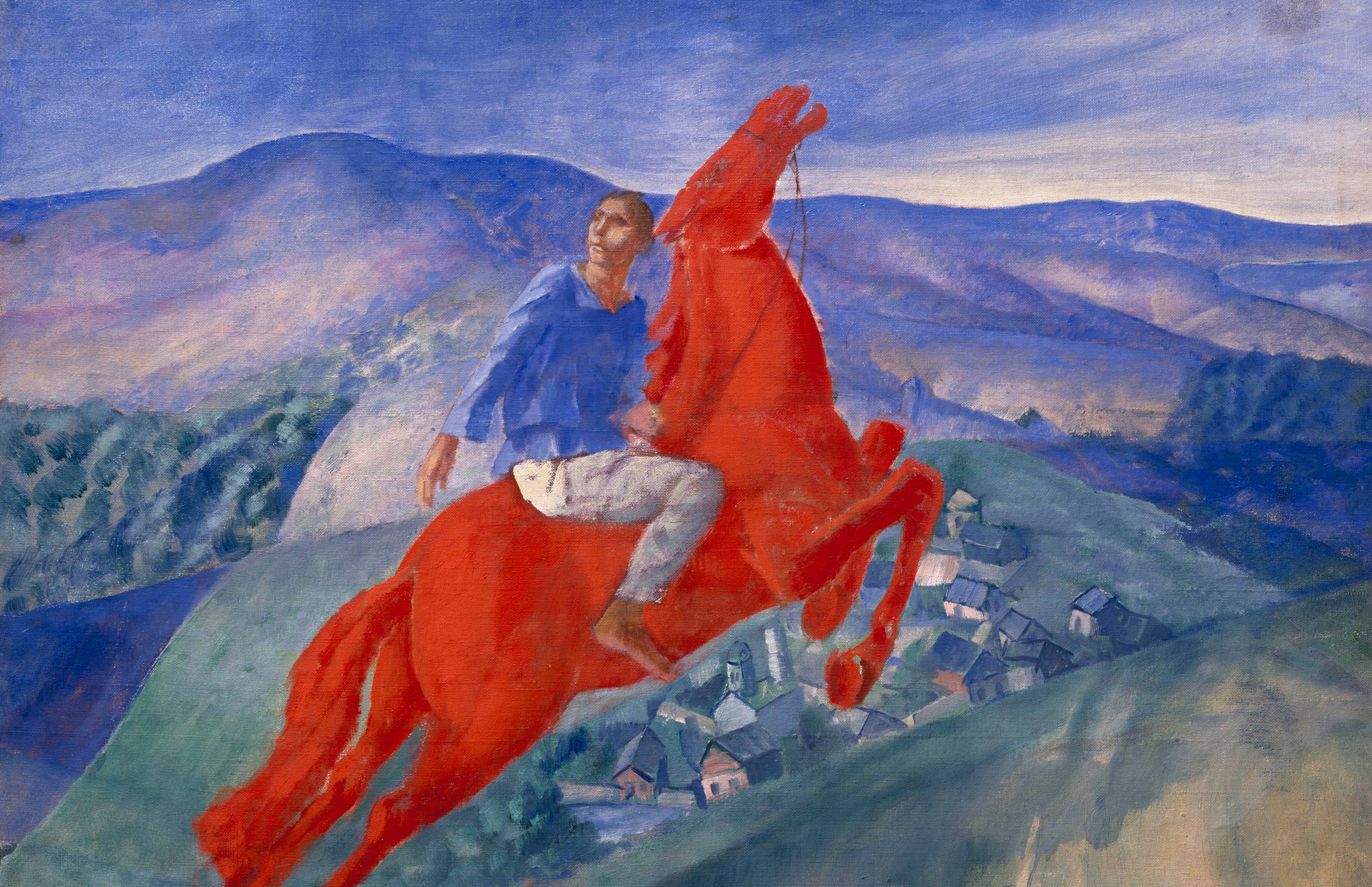Thelma Review

Genre: Drama, Mystery, Romance
Directed by: Joachim Trier
Starring: Eili Harboe, Kaya Wilkins, Henrik Rafaelsen, Ellen Dorrit Petersen
Thelma, the latest film by Joachim Trier, is a weird, clever and sexy drama about the struggles of blossoming adulthood that remains too undercooked to leave the devastating impact Trier and writing partner Eskil Vogt are surely aiming for with their devilish finale.
Starting as it ends, with an overhead view shot of a university campus, Trier finds symmetry in Thelma’s (Eili Harboe) journey. The camera is often omnipresent, with cinematographer Jakob Ihre using well-measured compositions and a minimalist colour palette to make it feel as if you’re intruding in the character’s life.
Thelma has just started university at Oslo and is away from her overbearing and religious parents for the first time. Moving away from home is fertile ground for storytelling, and Trier happily exploits the anxiety you feel as it seems everyone else is making friends faster than you. When Thelma meets a fellow student, Anja (Kaya Wilkins), her body begins spasming and she has what appears to be a supernatural seizure as she has telekinetically taken control of the birds outside of the library window. Trier gleefully manipulates expectations, pastiching the cliché horror movie trope of using animals, mainly birds, as the harbinger of dread. This year’s great Get Out killed a deer, and like that film, which used the animal to explore racial tensions and lay the groundwork for the twist, Thelma doesn’t ignore the trope as the birds become a motif, reappearing when she loses control of her powers.
Trier gleefully manipulates expectations, pastiching the cliché horror movie trope of using animals, mainly birds, as the harbinger of dread. This year’s great Get Out killed a deer, and like that film, which used the animal to explore racial tensions and lay the groundwork for the twist, Thelma doesn’t ignore the trope as the birds become a motif, reappearing when she loses control of her powers.
Eili Harboe plays Thelma with heart-breaking tenderness. She gives this bleak, minimalist, and economical film a heartbeat, and is the only person worth caring about in the whole film. The supporting cast gives good performances, but they often feel mechanical as if Trier only includes them because storytelling rules dictate they must be there.
Thelma’s journey is the only important part of this film, and while it juggles being a metaphor for multiple personal journeys, the ending involves Trier showing his hand and throwing out ambiguity. This is a beautiful coming out story about a girl accepting her sexuality. Her romance with Anja is measured, and in a superb scene set in a theatre, where Thelma is overwhelmed by her feelings, Trier contrasts her situation with the play’s physicality, and the sequence is exquisitely edited together.
There is no denying Thelma’s meticulous construction, but it is a cold film, often keeping you at arm’s length. The pace is deliberate and slow. It is nourishing on an intellectual level, but beyond Harboe, it is emotionally obtuse and caring about these characters is a frustrating experience.
★★★


